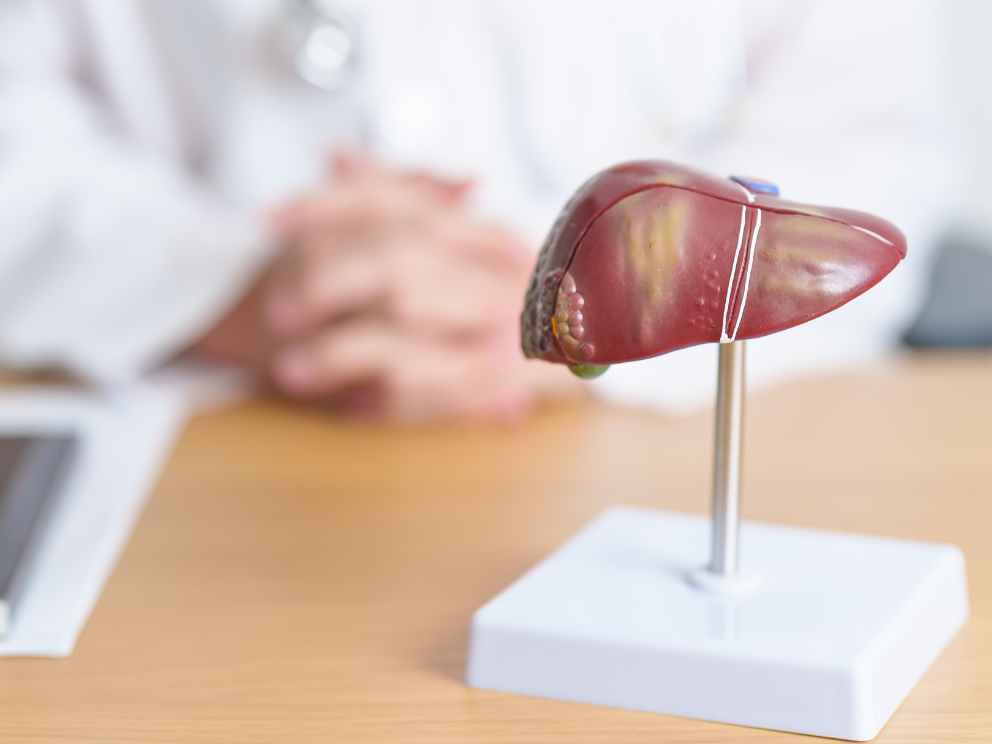Conditions We Treat
Liver Disease
Symptoms of Liver Disease
The symptoms of Liver Disease vary from person to person, and sometimes don’t even show at all. However, some symptoms include:
- Jaundice
- Pale Stool
- Dark Urine
- Fatigue
- Nausea or vomiting
- Bruising
- Swelling in the legs and ankles
- Abdominal pain and swelling (edema)
Liver Disease Diagnosis
Physicians traditionally diagnose liver disease using blood tests, imaging tests including fibroscans, and liver biopsies.
Treatment Options
Depending on the severity, progression, and type of liver disease you have, your doctor will be able to adapt a treatment plan for your unique needs, which may include taking medications to reduce the risk for viral infections, making changes in your lifestyle to reduce the progression of liver disease, as well as a liver transplant in advanced cases.

Who is at risk for Liver Disease?
- Those who are overweight or obsese
- Those who are chronic alcoholics
- Those who have had liver cancer
- Those who have inherited diseases such as Wilson disease and hemochromatosis
- Those with viral infections including hepatitis A, B, and C
- Those who practice unsafe sex
- Those who inject illicit drugs sharing used needles
Liver Disease Prevention
- Limiting alcohol consumption
- Avoid fatty foods
- Limiting the intake of popular over-the-counter medications that cause liver damage such as acetaminophen
- Maintaining a regular exercising regime
- Limiting consumption of red meats
- Practice safe sex at all times
- Do not share needles